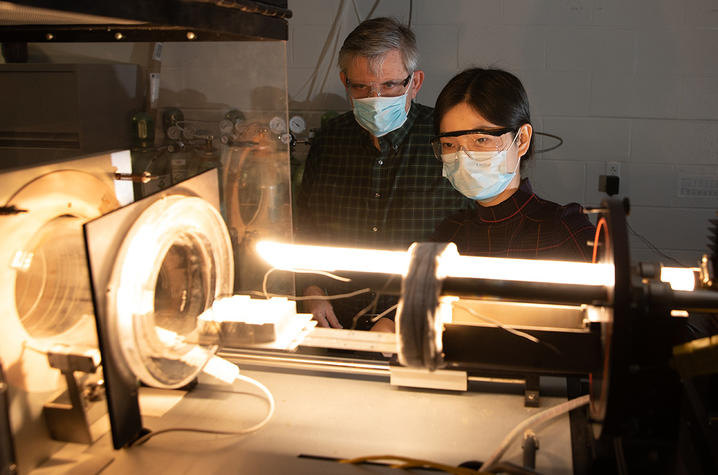UK Professor Part of NASA Teleconference on Next Space Station Resupply Mission

LEXINGTON, Ky. (Nov. 19, 2020) — While SpaceX continues preparations for the launch of NASA's SpaceX Crew-1 mission to the International Space Station, the company is also getting ready for the agency’s next cargo resupply mission to the orbiting laboratory.
This will mark the first resupply mission to use the upgraded version of the Dragon spacecraft — which will bring science and supplies to the newly expanded Expedition 64 crew.
To discuss those efforts, Dusan Sekulic, professor of mechanical engineering at the University of Kentucky, will participate in a national media teleconference on Friday, Nov. 20.
Since 2017, Sekulic has been leading an estimated $1 million international research project funded by NASA and the Roscosmos State Corporation for Space Activities in Russia.
The project, “Brazing Aluminum Alloys in Space," studies how molten metal could enable assembly, manufacturing and/or repairs to the International Space Station or other spacecrafts.
"Our research is devoted to resolving the damage that might be caused by micrometeoroids or space dust. We are trying to determine whether we can use the old technology called ‘brazing’ to execute the process in real-time," Sekulic said. "But before we go into development of the technology, we have to understand the physics of the problem and that requires experimentation and modeling simulation."
The project was selected as one of 16 flight proposals for research to be conducted aboard the International Space Station as part of NASA's MaterialsLab program. The team's data will eventually be available to the global community of researchers through the NASA Physical Sciences Informatics system. The UK project is the only proposal constituting a separate investigation, while the other 15 proposals are clustered in remaining six laboratory investigations.
Additionally, Sekulic’s research includes both experimental studies and theoretical modeling aimed at uncovering the behavior of aluminum alloys in liquid state. Experimental work will be executed both at the International Space Station and under terrestrial conditions.
“We are building the experimental samples, which are going to be delivered to the Space Station and then used in the equipment that is already there,” Sekulic explained. “In parallel, we are repeating exactly the same set of experiments under terrestrial conditions — performing the same set of analysis, comparing the two and concluding whether there are important differences related to the impact of gravity.”
NASA and SpaceX are targeting no earlier than 12:50 p.m. EST Wednesday, Dec. 2, for the CRS-21 launch from the Kennedy Space Center.
A detailed video about SpaceX’s mission to the Space Station, including Sekulic’s research, can be viewed here.
To participate in the teleconference, media must contact Stephanie Schierholz at 202-358-4997 by 11 a.m. Friday, Nov. 20, for dial-in information.
As the state’s flagship, land-grant institution, the University of Kentucky exists to advance the Commonwealth. We do that by preparing the next generation of leaders — placing students at the heart of everything we do — and transforming the lives of Kentuckians through education, research and creative work, service and health care. We pride ourselves on being a catalyst for breakthroughs and a force for healing, a place where ingenuity unfolds. It's all made possible by our people — visionaries, disruptors and pioneers — who make up 200 academic programs, a $476.5 million research and development enterprise and a world-class medical center, all on one campus.




